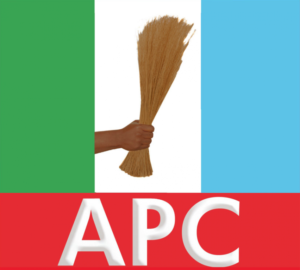Isaac Samuel
The Independent National Electoral Commission (INEC) is coming under scrutiny over its failure to act on more than 100 applications from associations seeking registration as political parties more than two years after the 2023 elections
The delay, observers say, could jeopardise the political ambitions of emerging opposition groups, including a powerful coalition plotting to unseat President Bola Ahmed Tinubu in 2027.
The coalition is pushing for the registration of a new party, the All Democratic Alliance (ADA), to avoid what they describe as the “compromised” structures of existing parties.
The delay, it was gathered could limit the ability of emerging groups to organise ahead of the next electoral cycle.
Some key stakeholders in the opposition coalition claim that registering a new party became necessary as many existing parties have allegedly been infiltrated by the ruling All Progressives Congress (APC), weakening their ability to serve as viable opposition platforms.
Former APC National Vice Chairman (North), Comrade Salihu Lukman, in an interview on a national TV claimed that the coalition had explored several options and concluded that forming a new party was the most secure route.
“More than 70 associations have submitted applications to INEC. But the commission appears to be sitting on them. There are no acknowledgements, no follow-upsnothing,” Lukman said.
Section 222 of the 1999 Constitution (as amended) states that no association shall function as a political party unless its officers are registered with INEC.
Section 75 of the Electoral Act 2022 further outlines procedures and timelines for such registration.
INEC in 2020 deregistered 74 out of 92 registered political parties in the country.
The commission said they were deregistered for their inability to fulfil requirements for existence based on Section 225A of the 1999 Constitution (as amended).
Since then, the commission is yet to register any political parties. Currently, there are 18 political parties in the country.
One of the applicants Barrister Okere Kingdom Nnamdi, who submitted documents for the Patriotic Peoples Party (PPP) on March 28, shared with reporters during the week that an acknowledgement from INEC indicating the process would begin “soon.”
Others awaiting registration include the Pink Peoples Party, Arewa Consultative Party, and Team New Nigeria Part
Executive Director, Centre for Electoral Governance and Accountability (CEGA), Hassan Balogun told this medium that INEC’s refusal to acknowledge and process political party applications is not just administrative negligence but a suppression of democratic participation by emerging voices.
“What we are witnessing is an attempt to maintain the political status quo by quietly blocking the legal pathway for new political entrants. That is dangerous for a country claiming to practice democracy.”
“The law is clear: INEC has a duty to acknowledge applications and act within 90 days. Any failure to do so amounts to a breach of the Electoral Act and an infringement on citizens’ political rights”, he said.
Programme Director, Democracy Watch Initiative (DWI), Linda Okonkwo, noted that delaying the applications without explanation raises questions about INEC’s independence and commitment to pluralism in Nigeria’s political landscape.
She said: “If new political movements are being quietly sidelined before they even get a chance to compete, then we are simply recycling old power structures under the guise of elections.”
“We call on INEC to publish the status of all pending applications immediately. Transparency is not a favour, it’s a legal and moral obligation in a democracy.”





